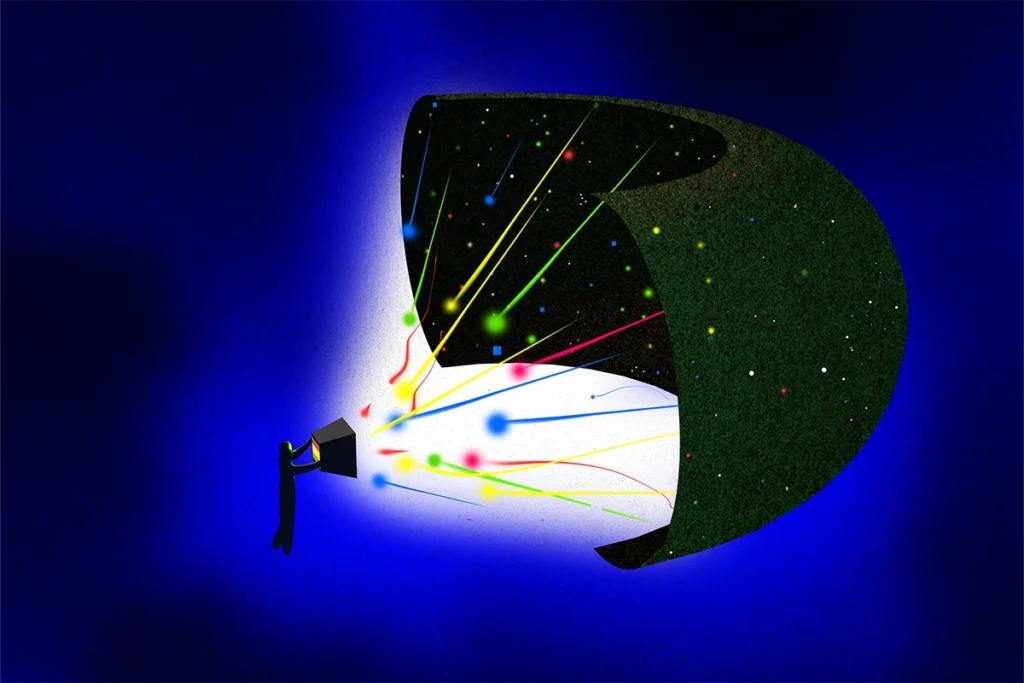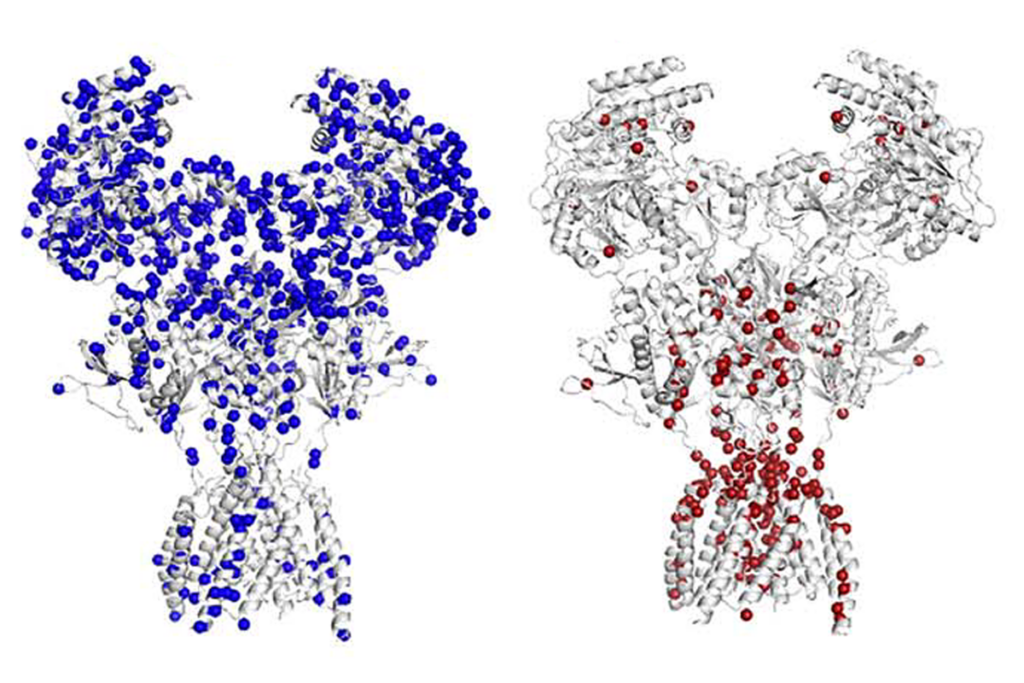About 12 years ago, François Quesque encountered a serious obstacle to his research on how people attribute mental states to others. It wasn’t technological or scientific. Rather, it was a question of word choice.
He realized that researchers frequently used the same terms to refer to distinct concepts, and distinct terms to refer to the same ones, blurring the meaning of “mentalizing,” “empathy” and related phrases. “It took me maybe eight or nine years to have a relatively clear, but probably not clear still, idea of what the literature was saying,” recalls Quesque, assistant professor of psychology at Université Paris Nanterre. “I thought it was impossible to conduct nice research with such a mess.”
For example, “theory of mind” is often used to describe a multitude of cognitive processes, Quesque and his colleagues demonstrated in a paper published in 2020. In response to that work, graduate students around the world contacted Quesque and told him they had struggled to reconcile their results with the literature because, despite identical terminology, their studies weren’t measuring the same concept.
Quesque has gathered a team of 44 other researchers—hailing from 12 countries—who are leaders in subfields of neuroscience and philosophy and who study mental state attribution. (Among them are Simon Baron-Cohen and Uta Frith, two of the co-authors of the 1985 paper that first showed that children with autism failed a theory of mind test.) Over six years, and thousands of emails, the collaboration discarded several commonly used terms and agreed upon eight key terms and their definitions.
The collaboration hopes to make this lexicon widespread by adhering to it in publishing, teaching and reviewing, Quesque says. The new lexicon was published in April in Communications Psychology.
The Transmitter spoke with Quesque about the importance of precise language when measuring and writing about cognition, and how a standardized lexicon could change how research is done.
This interview has been lightly edited for length and clarity.
The Transmitter: The collaboration recommends adopting “mentalizing”—instead of the much-used “theory of mind”—to refer to the ability to attribute mental states to oneself and others. Why the shift?
François Quesque: When the term “theory of mind” was developed, it referred to the idea that a human or an animal can have a naive theory about how the mind works. But then over time, the term shifted to refer to an ability.
With a theory, you have it or you don’t have it. But once we designed tasks to assess the performance of, for example, autistic children or adults, then it became difficult to say you have or you don’t have this capacity, because we have many, many scores. But we kept using the word.
Thanks to these new terms, it’s easier to say, for example, that autistic people are less efficient at mentalizing, rather than that they have “no theory of mind.” And I think this is the biggest accomplishment of the project.
It was relatively easy to convince people from this sample of experts to make the change. I mean, we all knew that it was just strange to say “theory” to refer to an ability. We instead voted for “mentalizing” to refer to the capacity to attribute mental states to other people.
TT: Here “theory of mind” is given a new definition. Could you talk about why you decided to keep it, but with a different meaning?
FQ: We didn’t want to discard the term “theory of mind,” because it was present everywhere. So we decided to keep the term to refer to a naive theory one can have about how the mind works.
Our definition is: “the use of folk psychological knowledge and heuristics (e.g., ‘mental states are correlated with behaviors’, ‘mental states differ between agents’) to think about one’s own and other people’s mental states.”
TT: What other terms posed challenges in your discussion?
FQ: Another term that is problematic but has so much use that we cannot confidently change it is the term “empathy.” There are more than 40 definitions in the current literature. It’s also used in art, philosophy and many other fields.
We decided we don’t want to use “empathy” to refer the attribution of mental states. We have one definition of empathy that we agree on: “the ability to experience others’ affective states, while maintaining the distinction from one’s own affective states.”
I have no huge hopes that this will be the main definition used in the literature. But we don’t want to see “empathy” used to refer to any kind of mental state attribution, because we have other alternatives that are less ambiguous.
TT: Could adopting a relatively unknown term such as “mentalizing” lead to better communication about research?
FQ: The main advantage is that people have to define it in the introduction of their paper and when they talk about their research. If I say to my parents and friends that I’m working on mentalizing, they’re like, “OK, what is that?” If I’m saying that I’m working on empathy, then everyone has an idea of what it is, so nobody will ask me to define it.
I’ve been reading literature on the topic of empathy in neurodegenerative diseases, and what I’ve noticed when I was reading the first 100 articles was that in half of them, there was no explicit definition of empathy, as if the word was evident for everyone. We should avoid terms from daily life when we are doing science, because we need to define things more specifically.
TT: For several terms that you looked at, as much as 60 percent of the experts surveyed had not encountered them before. What does that tell you?
FQ: I mean, if one of the terms is not known by half of the authors, this is already a problem. That means there is this very, very specific literature that is not accessible to the world experts on these topics.
For example, “cognitive theory of mind” had not been encountered by a third of our authors, who are world leaders. It’s impossible to have “cognitive theory of mind,” because it’s a cognitive process by default. Yet in France it’s in most students’ thesis introductions. This is completely crazy.
TT: How would you like to see autism researchers apply this lexicon?
FQ: I think it should influence the practice of science at every level. When talking about autism in particular, the huge advantage is that we are no longer saying that someone does or doesn’t have theory of mind, or that they acquire it completely at a given age, but rather that they have a more or less efficient capacity to mentalize.
There’s so much inter-individual variability, but the use of “theory of mind” as a term prevents researchers from investing money or time into looking at inter-individual variability in adults.
TT: Do you think others will adopt and maintain these new terms and definitions?
FQ: Many elements give me confidence. First, I have 44 big names that agree with me. Second, these names are representative of the fields that study these phenomena, and we had very high consensus, around 80 percent, all the time. Third, I think this lexicon will constitute very good guidelines for new Ph.D. students, and they will be happy to use it.
It’s very time-consuming to think about the terms you want to use. As a reviewer, I’m always asking authors to change their terms or justify them. I don’t care whether they use ours, but researchers should at least define and legitimate the terms they use.
Of course, I cannot review 1,000 papers per year, so everyone has to participate. Maybe in 2, 3 or 10 years, we will have made a significant step. But this is not something a single person can carry on. We have to act as a community.






